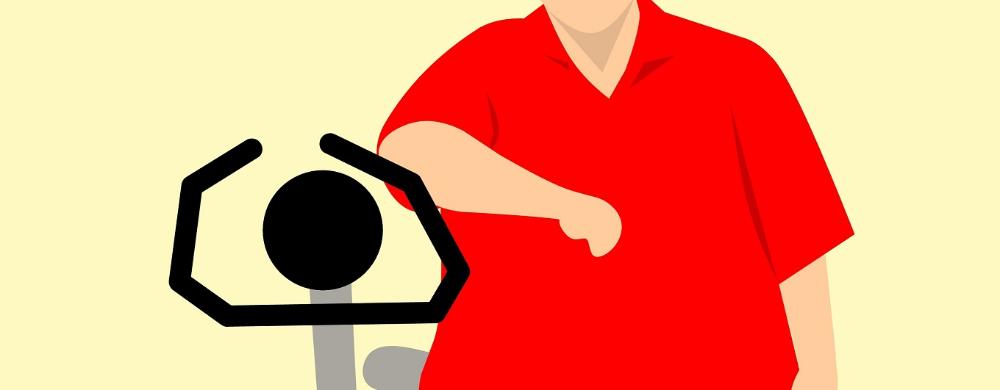EX-MET

EX-MET: How much exercise is needed to reduce cardiovascular risk?
Those who have at least three risk factors for cardiovascular disease have the metabolic syndrome. Exercise reduces the levels of most risk factors, and the EX-MET Study (EXercise in prevention of METabolic syndrome) aims to find out the optimal exercise intensity and amount for persons with the metabolic syndrome. EX-MET is organized from Trondheim, but we collaborate with five other research centers all over the world.
Background for the study
Around a quarter of all adults have the metabolic syndrome, which increases the risk of cardiovascular disease substantially. The syndrome is characterized by having at least three of the following risk factors: high waist circumference, high blood pressure, high blood glucose, high levels of triglycerides and low levels of HDL cholesterol. Lifestyle changes and exercise can prevent and treat the metabolic syndrome.
EX-MET includes more than 400 adults with the metabolic syndrome in Norway, Australia, Germany, Brasil and Equador. The study compares the effect of 4x4-minutes interval training three times a week with exercise according to today's guidelines of 30 minutes at least five days a week. A third group performs 1x4-minutes interval training, and we aim to investigate if this exercise option is an effective alternative that can make more people with the metabolic syndrome adhere to long-term exercise training on their own.
We have followed-up the participants after four months of organized training, and then again after one and three years. We look at how exercise affects the five risk factors contributing to the metabolic syndrome, but also cardiorespiratory fitness, heart function and skeletal muscle function.
List of scientific publications from EX-MET
2024:
Lechner, K., Kia, S., von Korn, P., Dinges, S. M., Mueller, S., Tjønna, A. E., Wisløff, U., van Craenenbroeck, E. M., Pieske, B., Adams, V., Pressler, A., Landmesser, U., Halle, M., & Kränkel, N. (2024). Cardiometabolic and immune response to exercise training in patients with metabolic syndrome: retrospective analysis of two randomized clinical trials. Frontiers in Cardiovascular Medicine, 11, 1329633.
2020:
Ramos, J. S., Dalleck, L. C., Stennett, R. C., Mielke, G. I., Keating, S. E., Murray, L., Hasnain, S. Z., Fassett, R. G., McGuckin, M., Croci, I., & Coombes, J. S. (2020). Effect of Different Volumes of Interval Training and Continuous Exercise on Interleukin-22 in Adults with Metabolic Syndrome: A Randomized Trial. Diabetes, Metabolic Syndrome and Obesity: Targets and Therapy, 13, 2443.
Ramos, J. S., Dalleck, L. C., Keith, C. E., Fennell, M., Lee, Z., Drummond, C., Keating, S. E., Fassett, R. G., & Coombes, J. S. (2020). Optimizing the Interaction of Exercise Volume and Metformin to Induce a Clinically Significant Reduction in Metabolic Syndrome Severity: A Randomised Trial. International Journal of Environmental Research and Public Health, 17(10), 3695.
Rodrigues, J. A. L., Ferrari, G. D., Trapé, Á. A., de Moraes, V. N., Gonçalves, T. C. P., Tavares, S. S., Tjønna, A. E., de Souza, H. C. D., & Júnior, C. R. B. (2020). β 2 adrenergic interaction and cardiac autonomic function: effects of aerobic training in overweight/obese individuals. European Journal of Applied Physiology, 120(3), 613-624.
2019:
Torquati, L., Coombes, J. S., Murray, L., Hasnain, S. Z., Mallard, A. R., McGuckin, M. A., Fassett, R. G., Croci, I., & Ramos, J. S. (2019). Fibre Intake Is Independently Associated with Increased Circulating Interleukin-22 in Individuals with Metabolic Syndrome. Nutrients, 11(4), 815.
Mallard, A. R., Ramos, J. S., Roberts, L. A., Centner, C. M., Fassett, R. G., & Coombes, J. S. (2019). The association between metabolic syndrome severity and oxidative stress induced by maximal exercise testing–a cross-sectional study. Biomarkers, 24(4), 394-400.
2018:
Tjønna, A. E., Ramos, J. S., Pressler, A., Halle, M., Jungbluth, K., Ermacora, E., Salvesen, Ø., Rodrigues, J., Bueno jr., C. R., Munk, P. S., Coombes, J., & Wisløff, U. (2018). EX-MET study: exercise in prevention on of metabolic syndrome–a randomized multicenter trial: rational and design. BMC public health, 18(1), 437.
2017:
Ramos, J. S., Dalleck, L. C., Borrani, F., Beetham, K. S., Wallen, M. P., Mallard, A. R., Clark, B., Gomersall, S., Keating, S. E., Fassett, R. G., & Coombes, J. S. (2017). Low-volume high-intensity interval training is sufficient to ameliorate the severity of metabolic syndrome. Metabolic syndrome and related disorders, 15(7), 319-328.
Ramos, J. S., Dalleck, L. C., Borrani, F., Beetham, K. S., Mielke, G. I., Dias, K. A., Wallen, M. P. Keating, S. H., Fassett, R. G., & Coombes, J. S. (2017). High-intensity interval training and cardiac autonomic control in individuals with metabolic syndrome: a randomised trial. International journal of cardiology, 245, 245-252.
2016:
Ramos, J. S., Dalleck, L. C., Ramos, M. V., Borrani, F., Roberts, L., Gomersall, S., Beetham, K. S., Dias, K. A., Keating, S. E., Fassett, R. G., Sharman, J. E., & Coombes, J. S. (2016). 12 min/week of high-intensity interval training reduces aortic reservoir pressure in individuals with metabolic syndrome: a randomized trial. Journal of hypertension, 34(10), 1977-1987.
Ramos, J. S., Dalleck, L. C., Borrani, F., Mallard, A. R., Clark, B., Keating, S. E., Fassett, R. G., & Coombes, J. S. (2016). The effect of different volumes of high-intensity interval training on proinsulin in participants with the metabolic syndrome: a randomised trial. Diabetologia, 59(11), 2308-2320.
Ramos, J. S., Dalleck, L. C., Borrani, F., Fassett, R. G., & Coombes, J. S. (2017). Cardiorespiratory fitness is positively associated with increased pancreatic beta cell function independent of fatness in individuals with the metabolic syndrome: Fitness versus fatness. Journal of science and medicine in sport, 20(1), 45-49.
Send us an e-mail:
cerg-post@mh.ntnu.no
Send us regular mail:
NTNU, Fakultet for medisin og helsevitenskap
Institutt for sirkulasjon og bildediagnostikk
Postboks 8905
7491 Trondheim
Visit us:
St. Olavs Hospital
Prinsesse Kristinas gt. 3
Akutten og Hjerte-lunge-senteret, 3. etg.
7006 Trondheim




